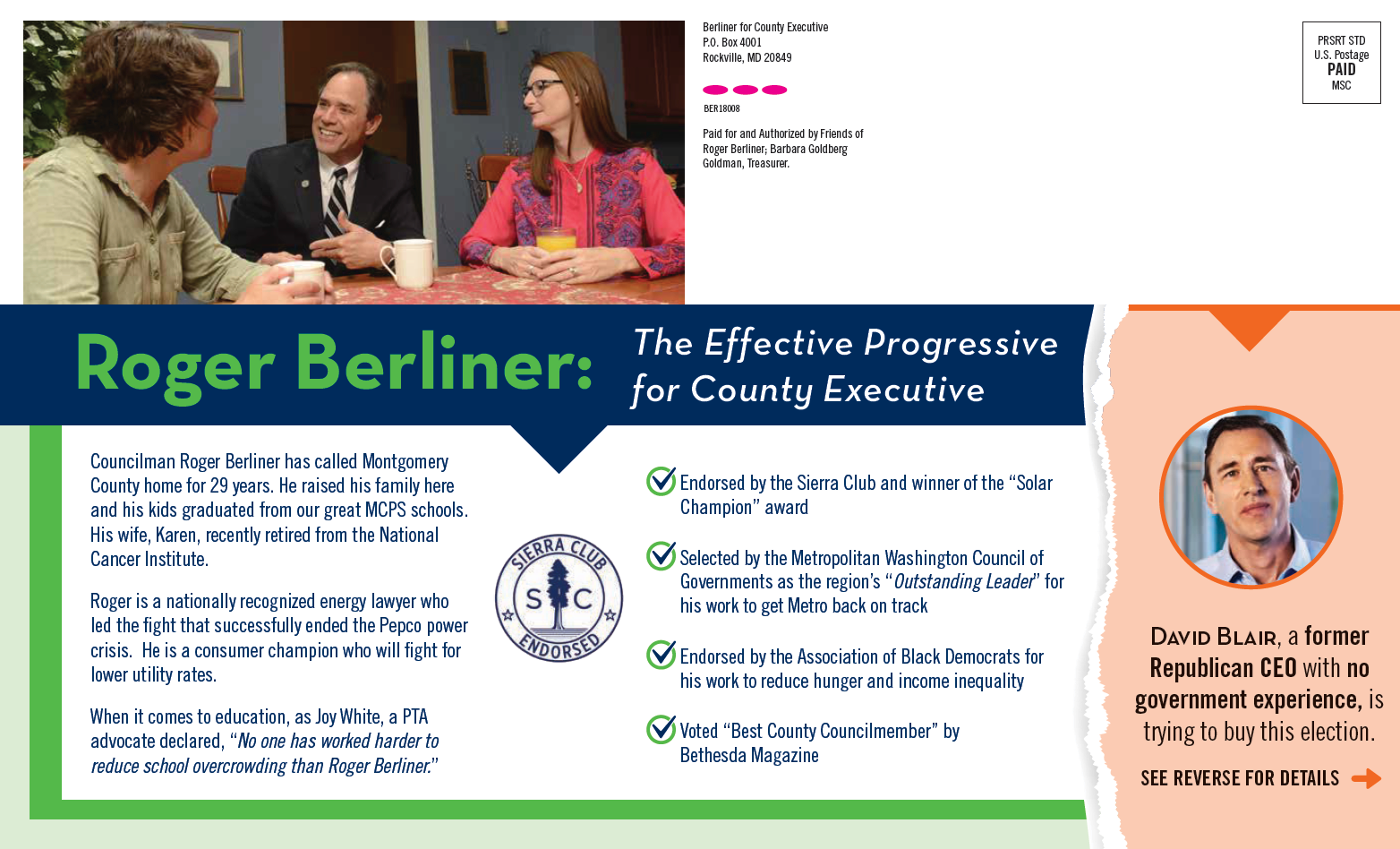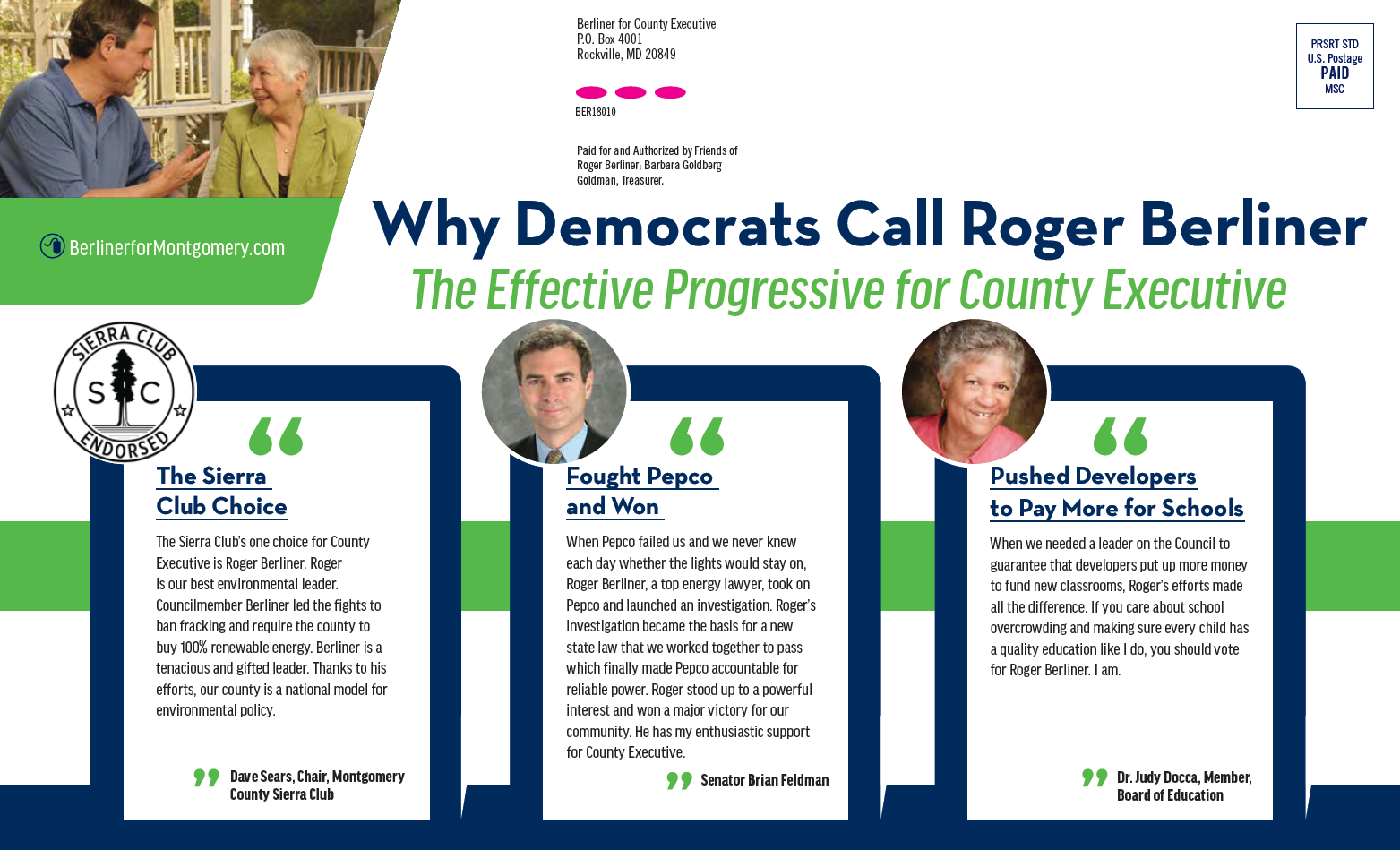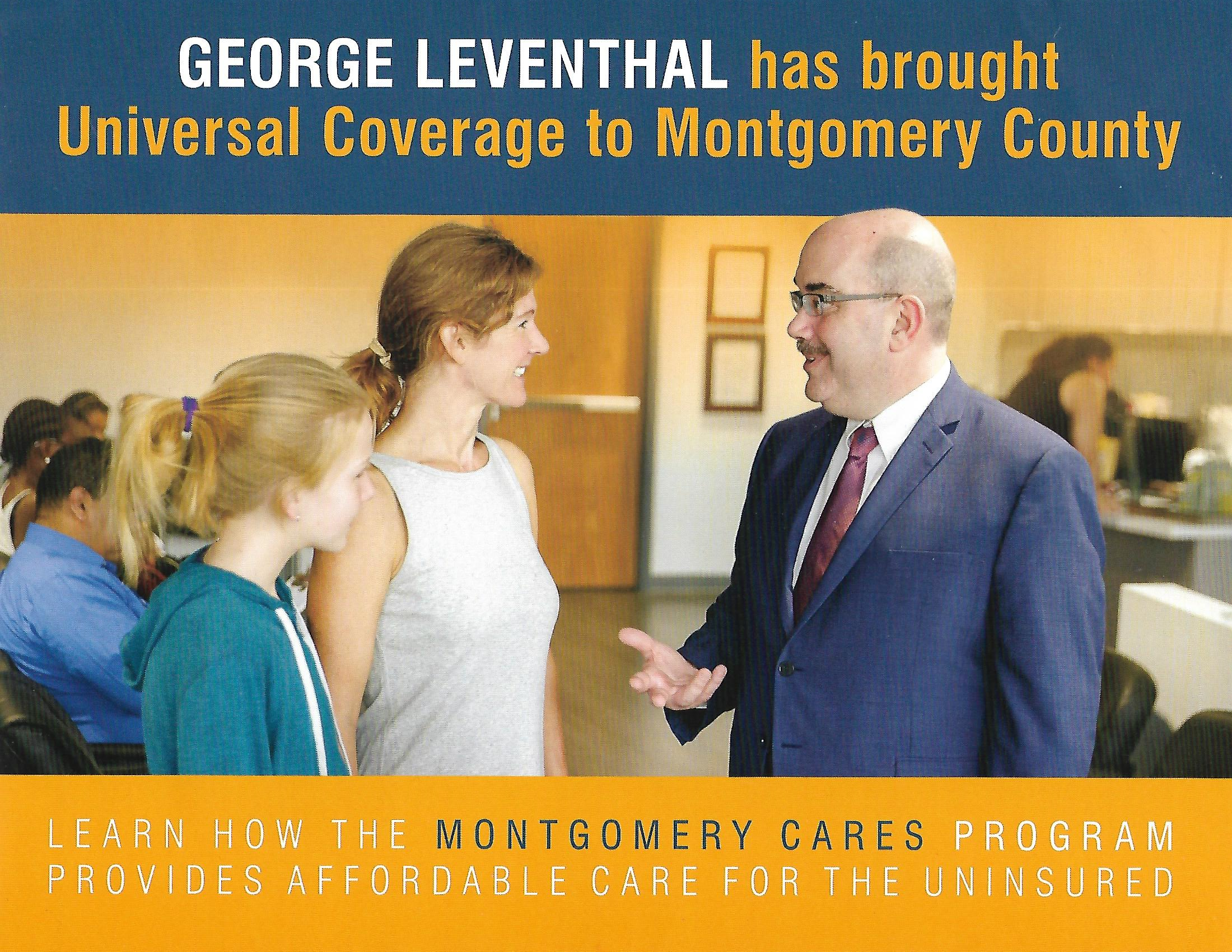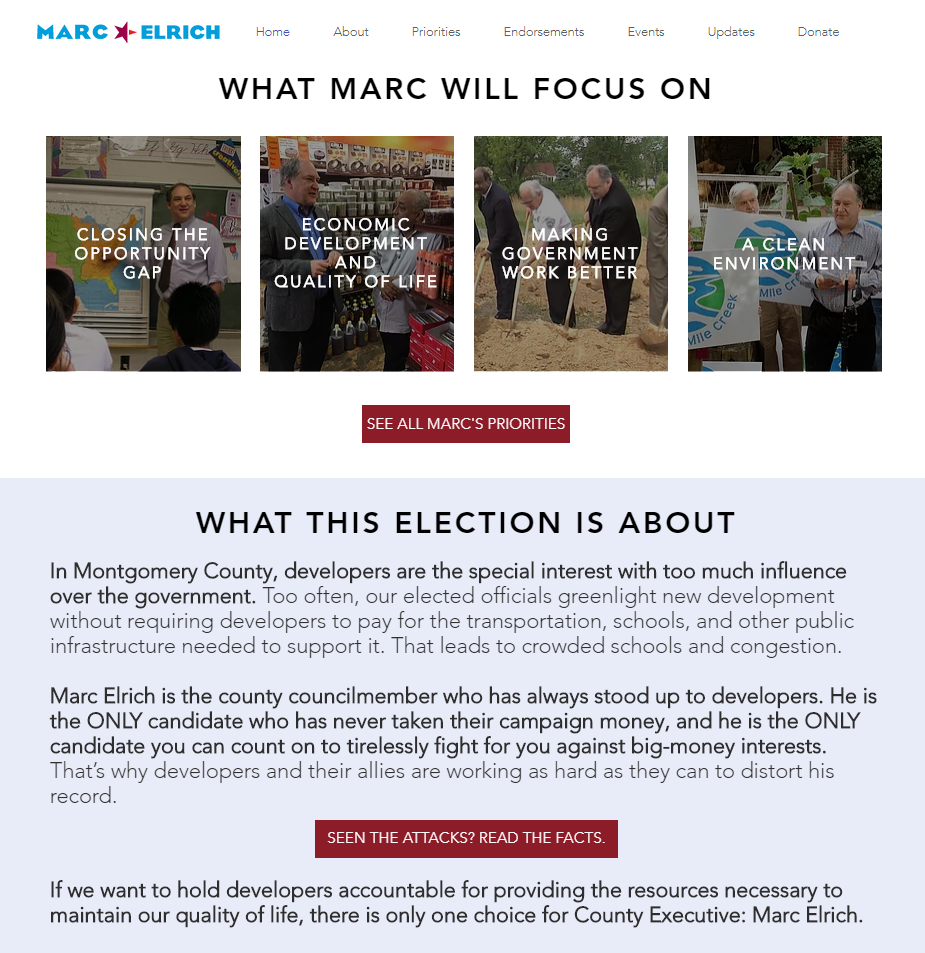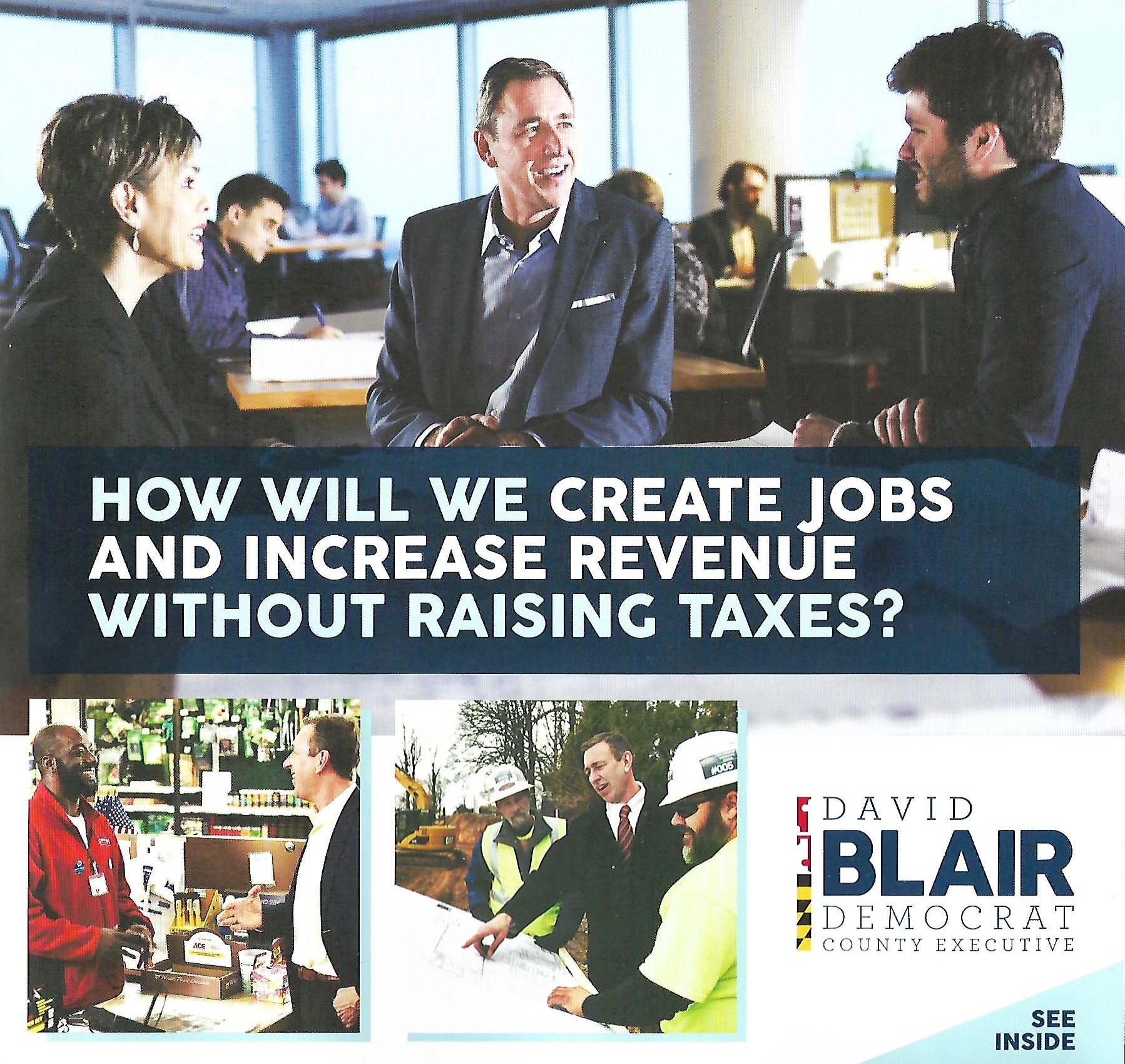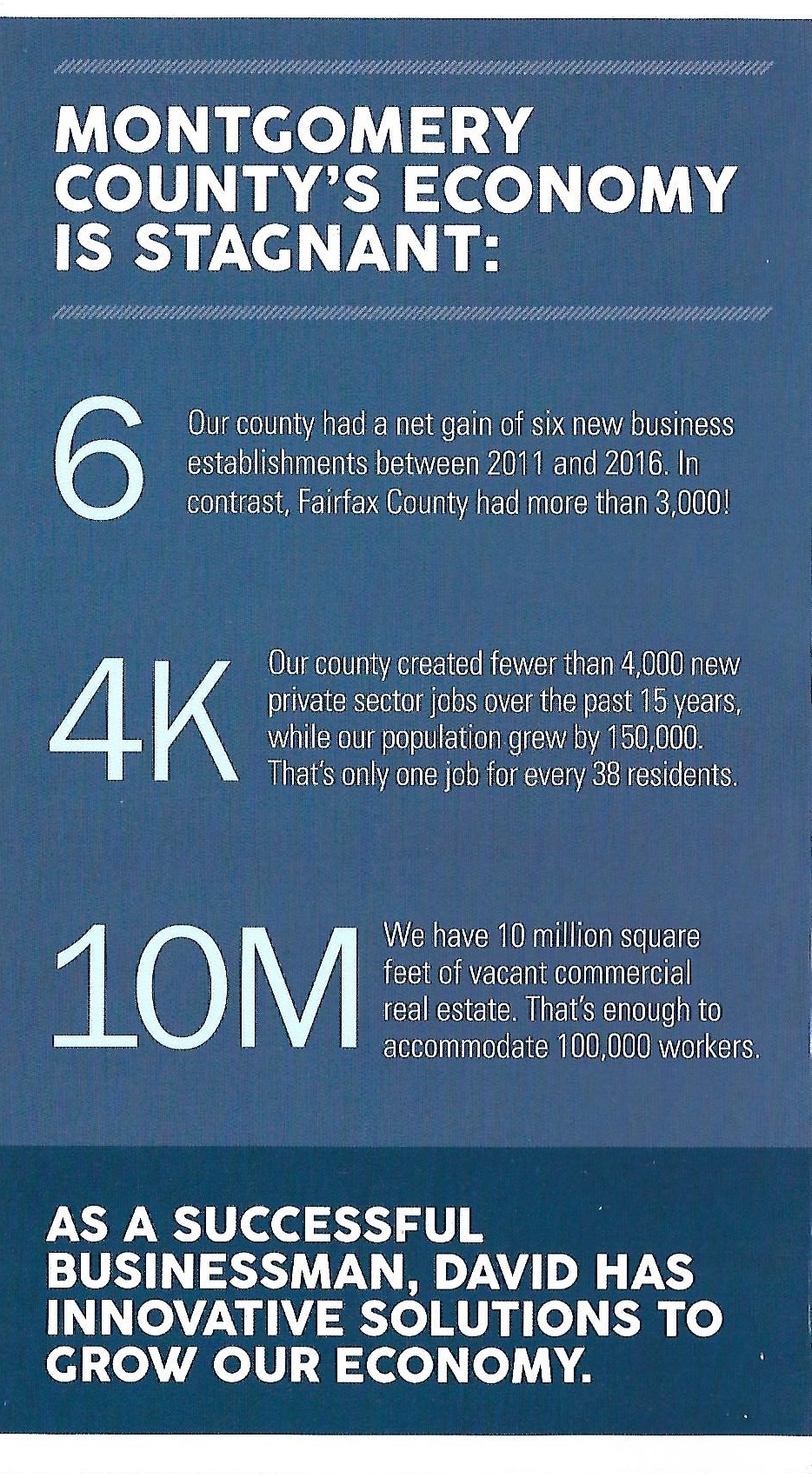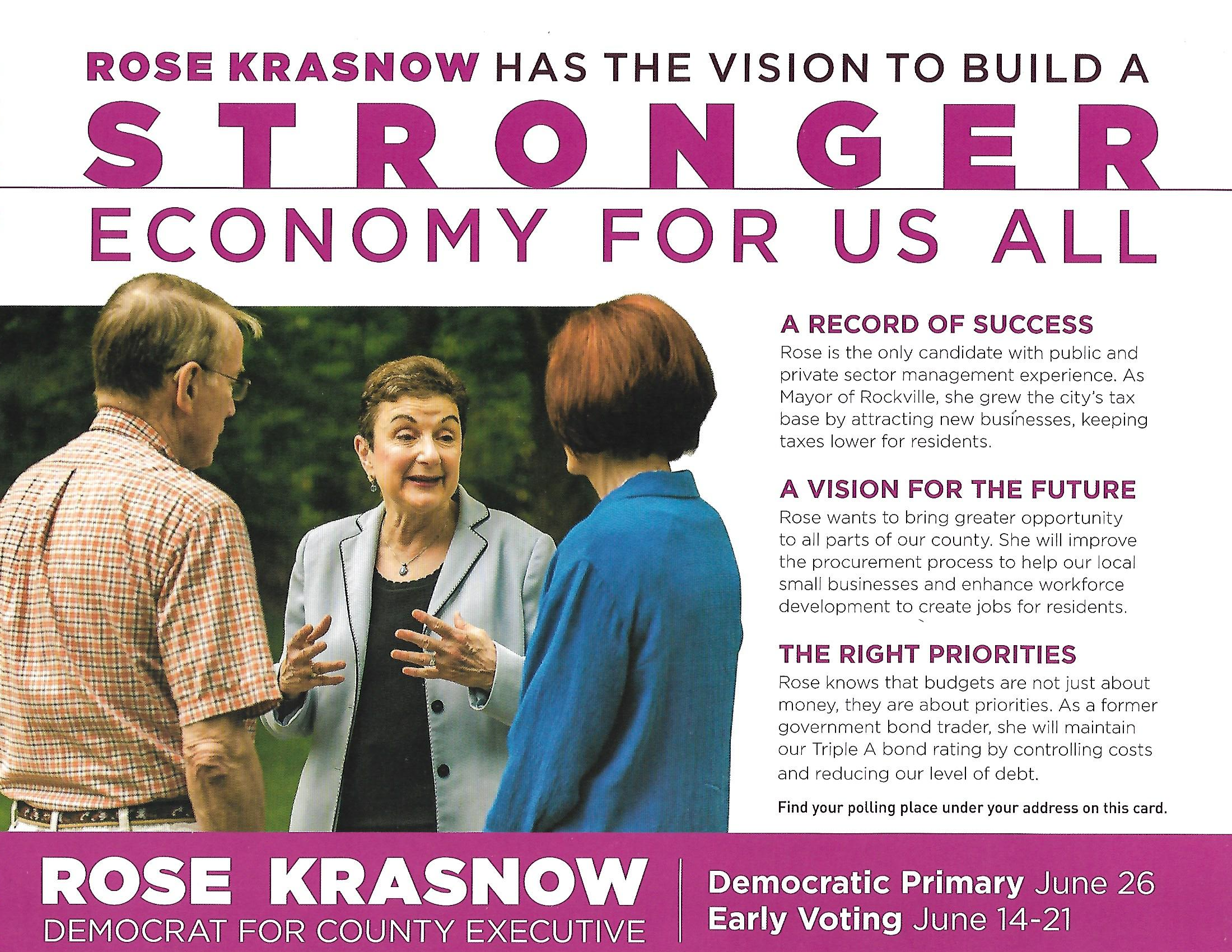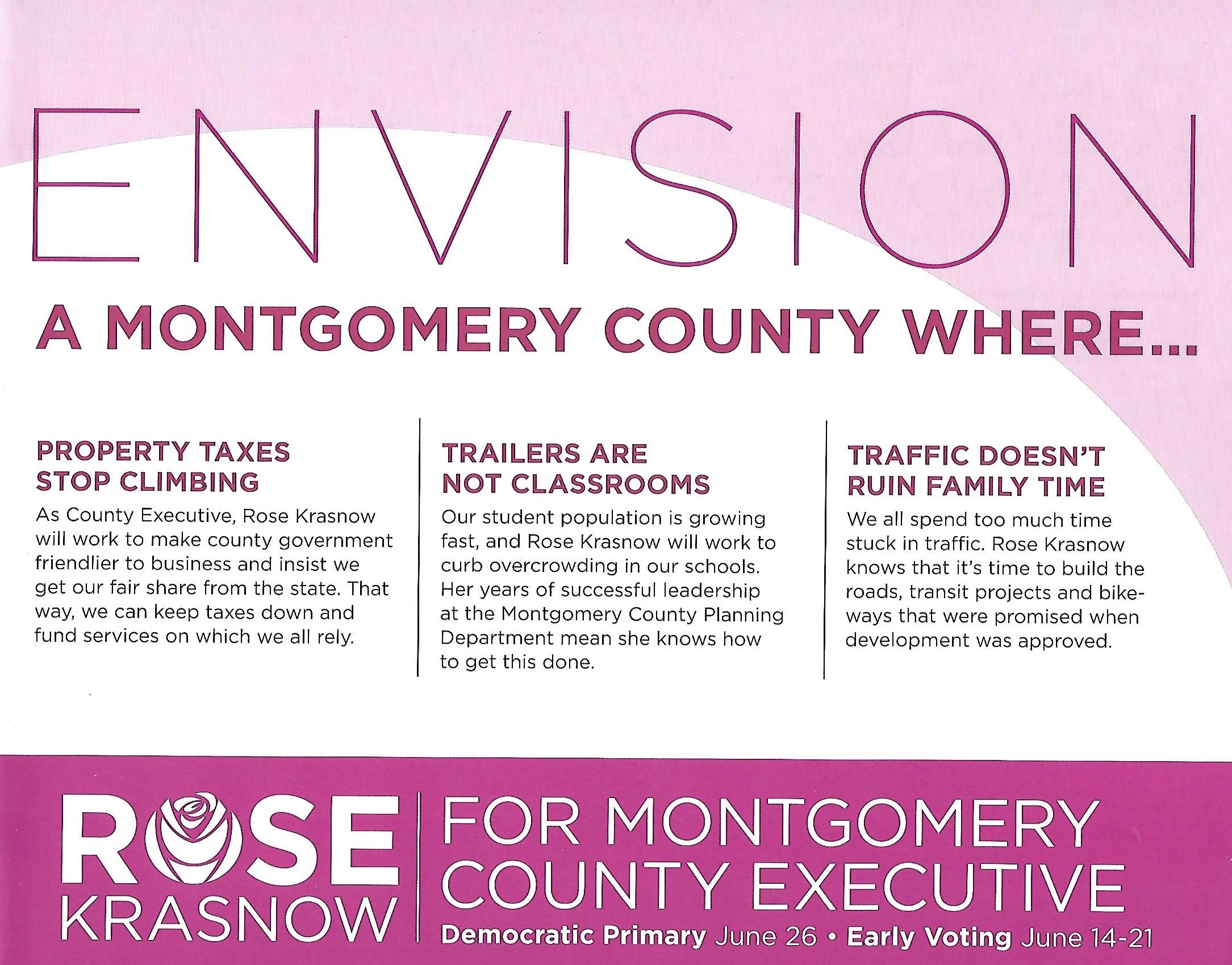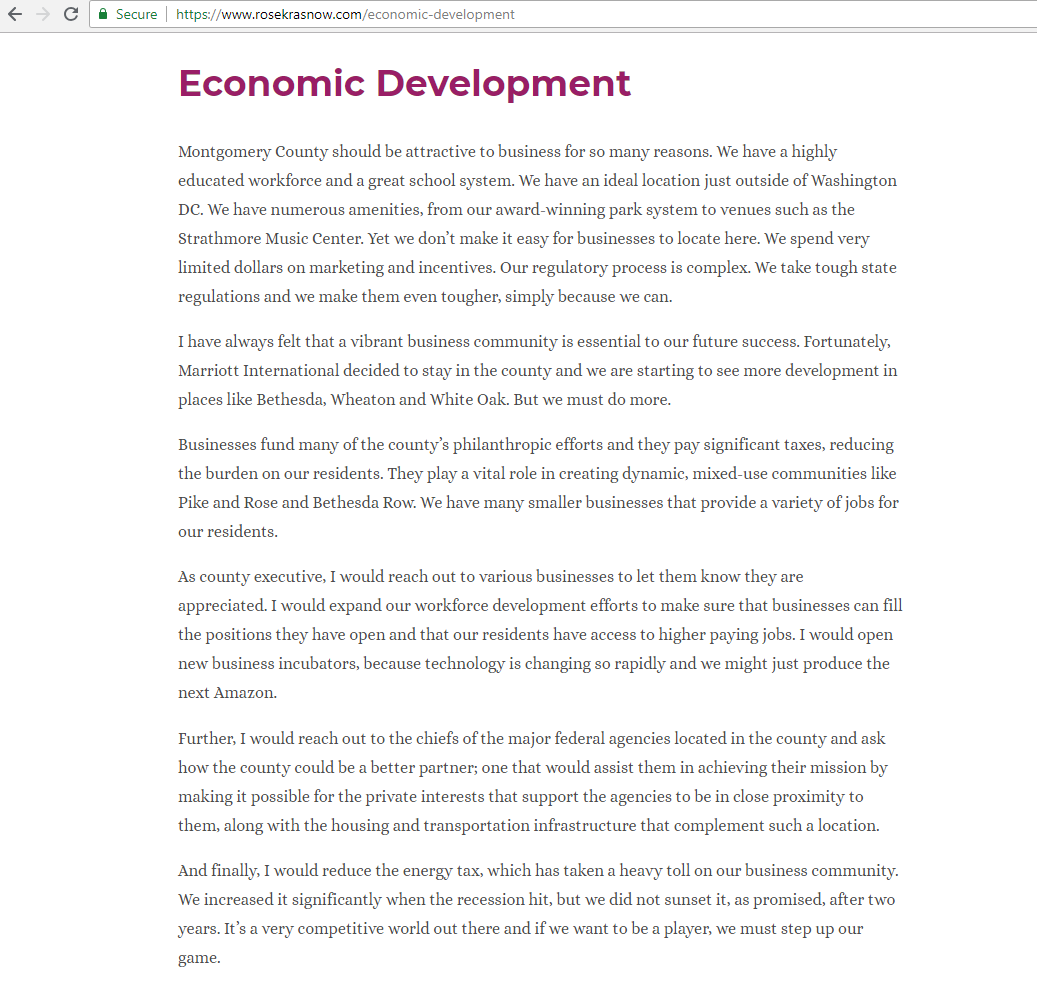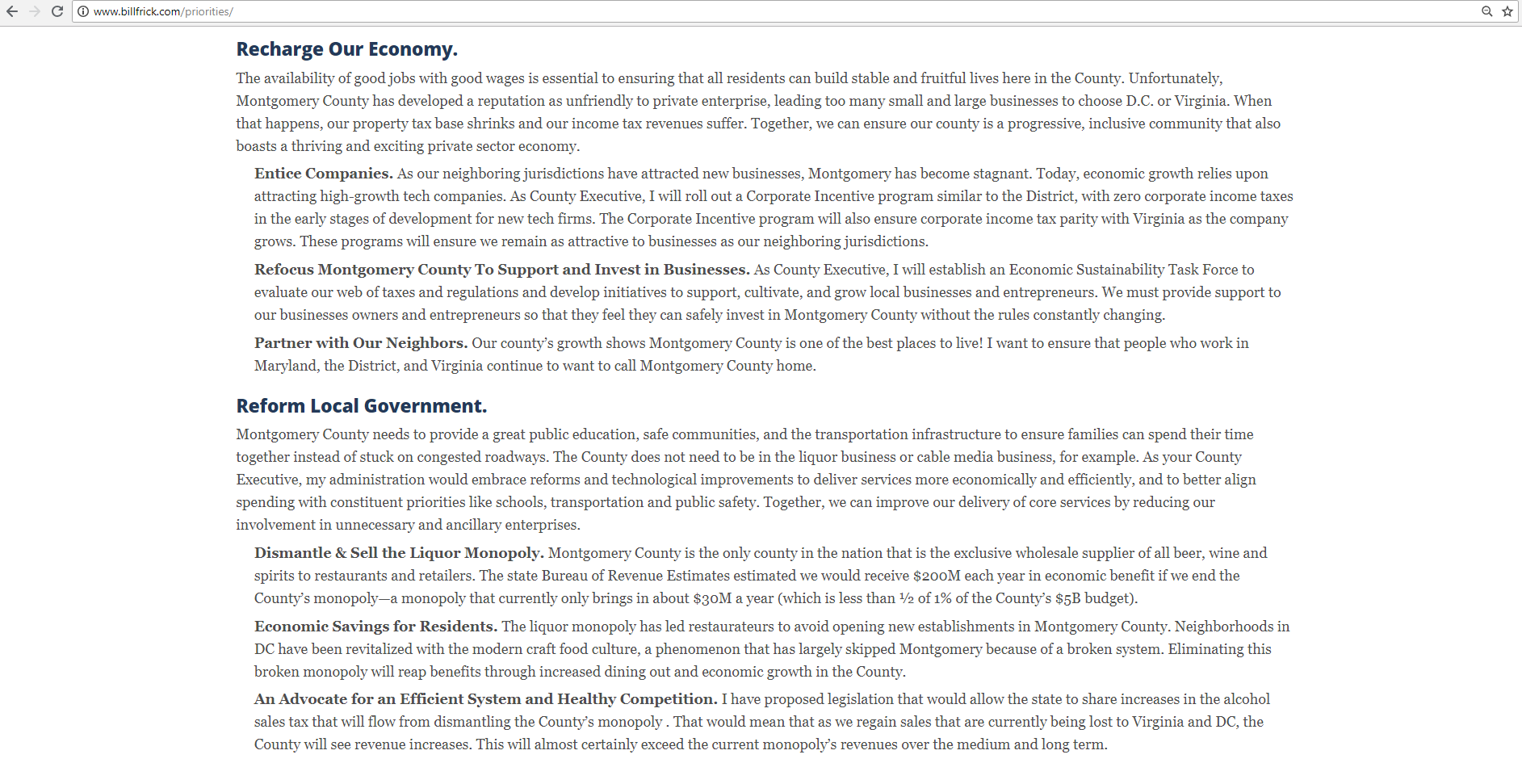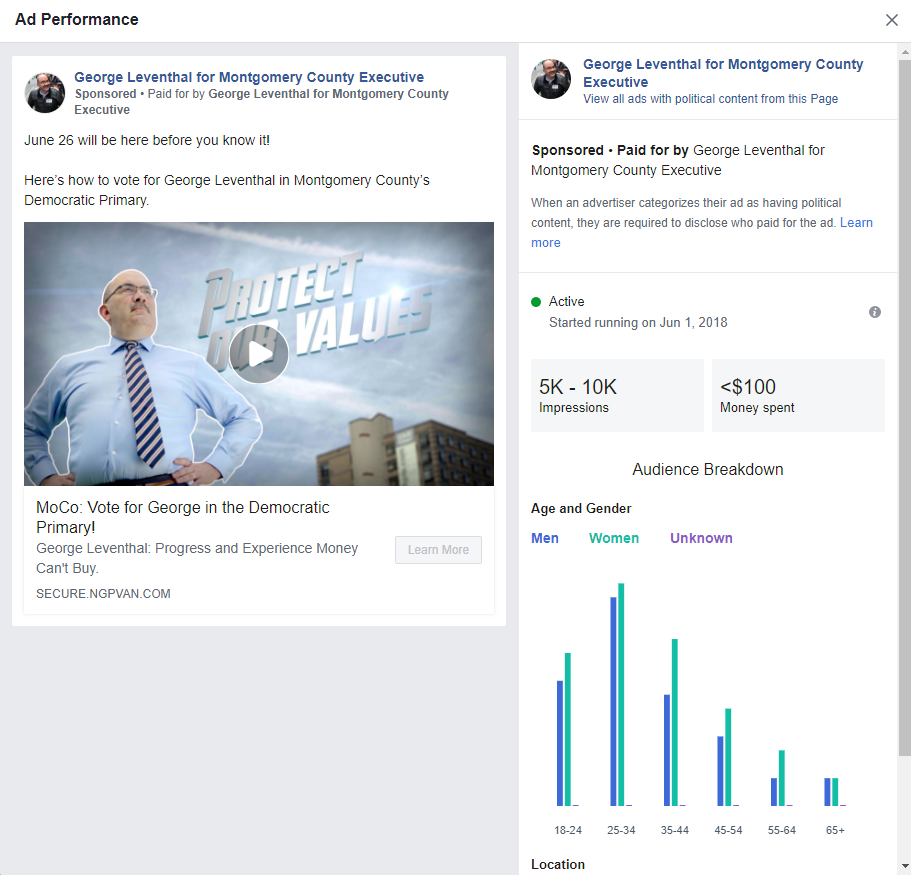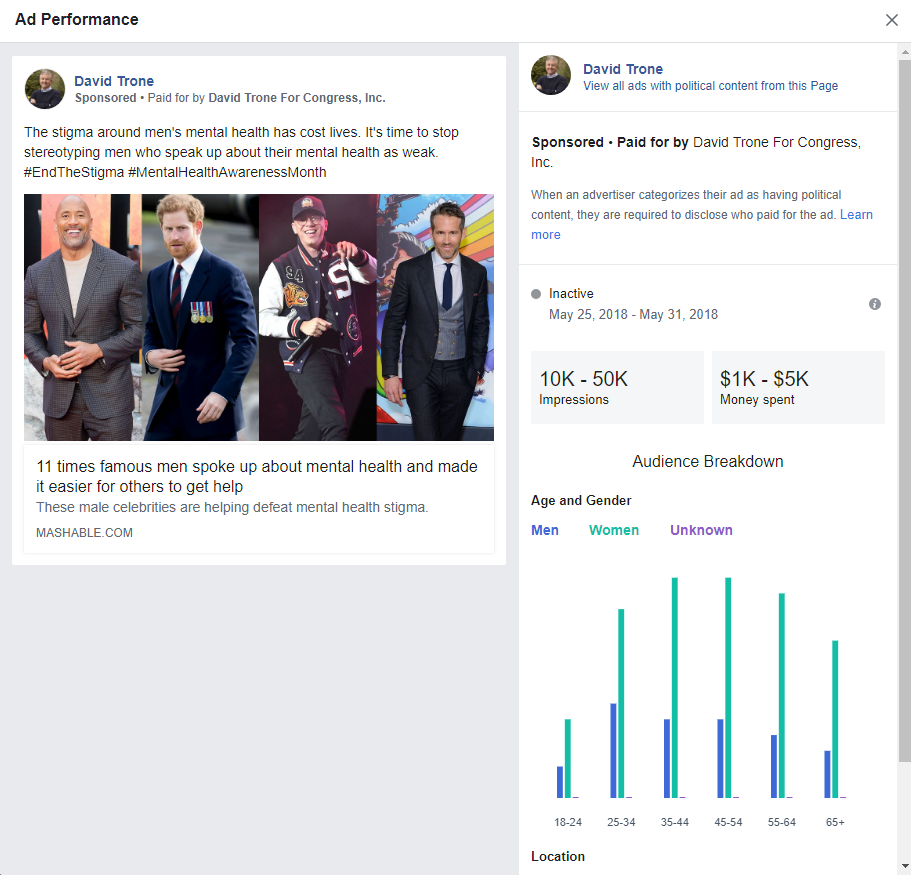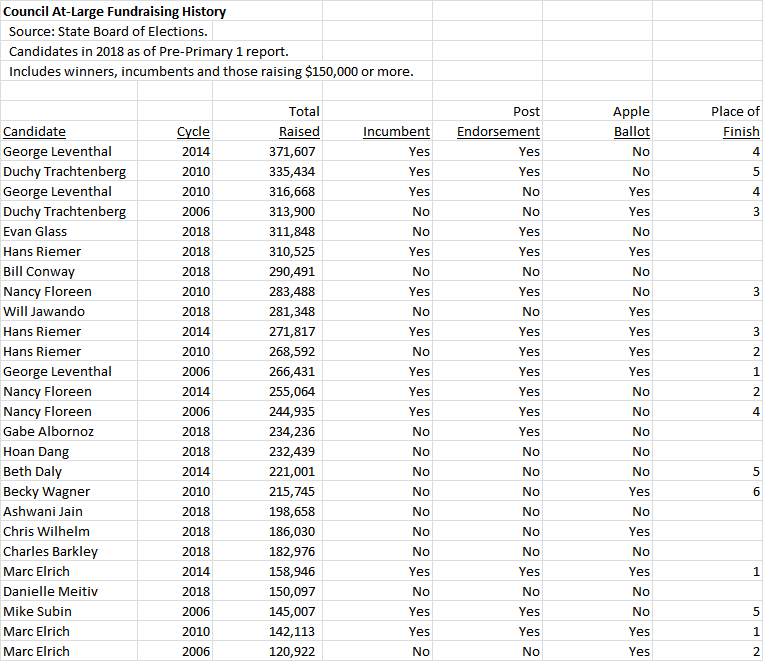By Adam Pagnucco.
Lots of attention has been paid to who will win the MoCo Democratic Primary for Executive. At this point, it appears to be Council Member Marc Elrich. But much less attention has been paid to something equally important: the voice of the voters. In this primary, MoCo Democrats spoke out loud and clear about their preferred directions for the future of the county.
The Executive race is like no other in MoCo. The office may not be as powerful as the County Council on paper, but its holder is THE leader and spokesman for the county and sets the tone and direction of the county going forward. Voters understand that. And they scrutinize the message and vision of the Executive candidates to a much greater extent than others running for local office.
In this primary, there were six candidates for Executive. Each had enough resources to be heard. And as a group, they sent three kinds of messages to the voters. By choosing between these three messages, the voters indicated their preferred directions for the county’s future.
Status Quo (23% of the vote)
Council Members Roger Berliner and George Leventhal ran on their records in office and argued that they merited a promotion to Executive. Berliner and Leventhal were arguably the two most effective legislators on the County Council. Both showed substantial skill at passing a large variety of bills, including difficult ones like Berliner’s bill to protect street trees and Leventhal’s bill to prevent unilateral sales of county property by the Executive. The two served a combined twenty-four years as committee chairs and each was elected Council President twice. Their records were not just their own, but were also essentially those of the council itself. Boiled down to its basic nature, their message was, “I’m an experienced leader and you can count on me to continue the county’s success.”
Berliner and Leventhal ran on their records as Council Members in their mail.
In many years, this kind of strategy would have worked. MoCo Democrats tend to respect effective elected service. But this was not one of those years as Berliner and Leventhal combined to get 23% of the vote. More than three-quarters of Democrats opted for change of one kind or another.
Progressive Plus Anti-Developer Direction (29% of the vote)
Despite being in elected office continuously for 31 years, Council Member Marc Elrich ran as a change candidate. He argued that the county needed a more progressive social justice direction that would help renters, vulnerable people and those living in and close to poverty. He was especially focused on closing the achievement gap in public schools and instituting the most progressive environmental standards in the nation. At the same time, he lambasted developers as “the special interest with too much influence over the government” and vowed to “hold developers accountable for providing the resources necessary to maintain our quality of life.”
Elrich’s comments about developers on his website and in email are in line with the message he has used for decades.
This wasn’t just Elrich’s campaign; almost the entire progressive movement in MoCo lined up behind him and did everything they could to get him elected. The result was 29% of the vote.
Competitive Direction (48% of the vote)
The three non-Council Members – businessman David Blair, former Rockville Mayor Rose Krasnow and Delegate Bill Frick – had very different biographies but they had similar campaign messages, especially on the economy. All three agreed that the county’s economic competitiveness is slipping and must be restored to fund the kinds of progressive priorities favored by all the candidates, and most of the voters.
Blair, Krasnow and Frick made economic competitiveness the focus of their campaigns in their mail and websites.
Blair, Krasnow and Frick combined to receive 48% of the vote with essentially the same message on the economy. The Executive election revealed that the group of voters wanting economic competitiveness and tax restraint is the largest faction in the county’s Democratic Party. The competitive direction candidates did not win because there were too many of them and they split up each other’s support, allowing Elrich to squeak in by 80 votes.
Combine the competitive direction Democrats with the roughly 40% of registered voters who are unaffiliated or Republicans and you get 70% of the general electorate – the exact percentage who voted for term limits. These numbers are not a coincidence.
The Executive election is not quite finished yet. Council Member Nancy Floreen is trying to get on the ballot as an independent, which we believe is an uphill battle, and a general election awaits. But through their votes on candidate messages, MoCo Democrats have spoken about where they would like the county to go. Elected officials would be wise to heed them.

